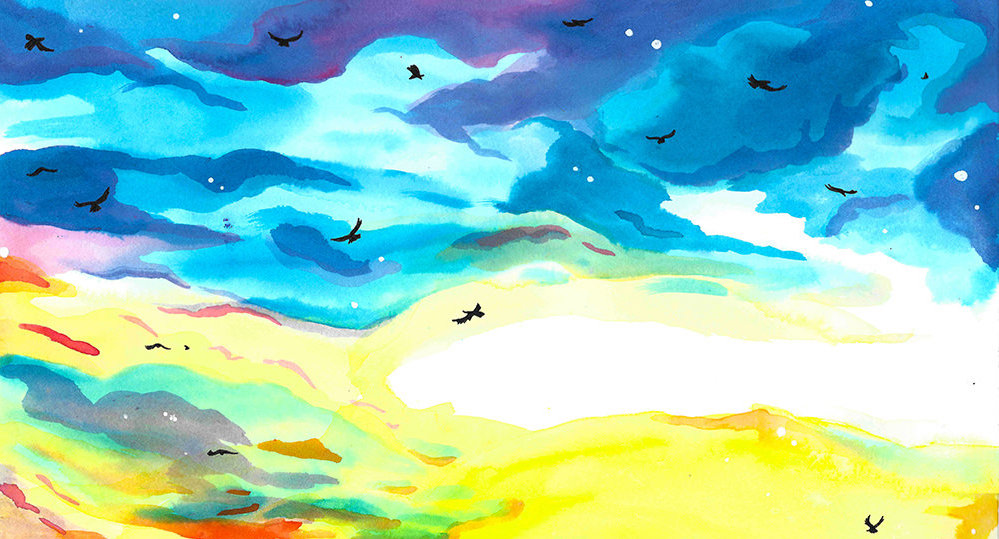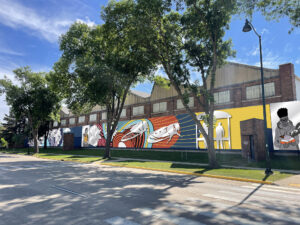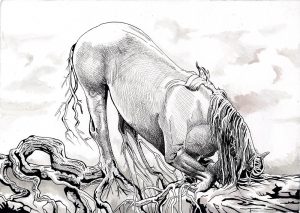I recently wrote an article for Madison Magazine’s June edition, Voices of Resilience, to address the very real, cultural consequences that will result from COVID-19. The article is a warning, and also a challenge for the visionary action that we as a society must take. I posited the question, what if this could be our cultural renaissance? And what threats do we have to overcome to make a renaissance possible?
I expanded on this vision in my talk, Our Renaissance, for DreamBank. There is still so much more we could cover. But let me share with you the two worlds that I can imagine after this. The first is the world that I fear. The second is the world that I hope for.
Here is the world I fear. Imagine that the beloved people in our lives will get sick, and too many will leave us too soon. Imagine that our small businesses will fail. Our local ecosystems will collapse. Imagine that in the aftermath, only franchises, banks, and predatory businesses like payday loans will move in to claim the vacant spaces left behind. Imagine how much inequality will worsen, how racial and gender disparities will grow. Imagine that while all of this is happening, the leaders of our large businesses, our charities, and public offices all fail to take action.
Here is the world I hope for. Imagine that we strengthen our local supply chains, and with them, our understanding of where our food, goods, and services come from. Imagine your local food vendors collaborating to share resources. Your local baker gets yeast from your local brewer. They share resources to support the labor of our farmers.
Imagine that businesses and governments reinvent their infrastructures to put the value of labor at the center, so no one makes less at their jobs than unemployment. Imagine that after this, servers earn a fair wage regardless of tips.
Imagine that nonprofits serve the cause of resolving inequity first, and institutional preservation second to their social mission.
Imagine that our public officials start acting on out-of-control rent and real estate prices. Imagine that we finally begin to see residential space as a way to shelter people. Imagine that we see commercial space as a way to elevate all people through economic opportunity. We see space as a social equalizer to be shared, instead of property to be conquered.
Imagine how we could redirect our resources. Imagine if the money that would have gone to put on happy hours, networking events, and fundraising parties, is instead used to hire the unemployed to improve public parks and facilities, or to hire people at cultural and historical nonprofits to catalog the history of our region, and to document a truly diverse record of who we are at this time.
Imagine a world where we spend more time online, yes, but also more time at home and outside. Did you know that 70% of the information you absorb comes through your eyes? Imagine that while you’re at home, not just passing through from the kitchen to the TV to the bed, you finally notice just how bare your walls are, how rarely your books move, and how little you know about local artists, authors, and musicians. Maybe it’s time to redecorate.
Imagine that because we spend more time outside, for the first time you truly look at your neighborhood. You notice which intersections aren’t safe to cross. You notice which buildings have blank, windowless walls. You notice how bad the wayfinding is in the business district. You notice poorly kept land that would make a nice community garden. You notice an amazing POC-owned restaurant that never gets trendy reviews. You have a neighbor who’s an urban planner, another a muralist, another a graphic designer, another an expert in permaculture, another a journalist. Could they be the solution? You imagine the future of jobs, of leadership, of representation.
Imagine that the point of all of this is to finally give you time and space to ask, what kind of city do you want to wake up to after the pandemic? What do you have to do now to make it real?
Maybe none of it is enough. Maybe what we can do individually isn’t enough stacked against the unequal powers of this world. But maybe it is enough to send a signal of who we are. When we assert our collective vision of the world, others will show up, too. And that is the power we can claim.




